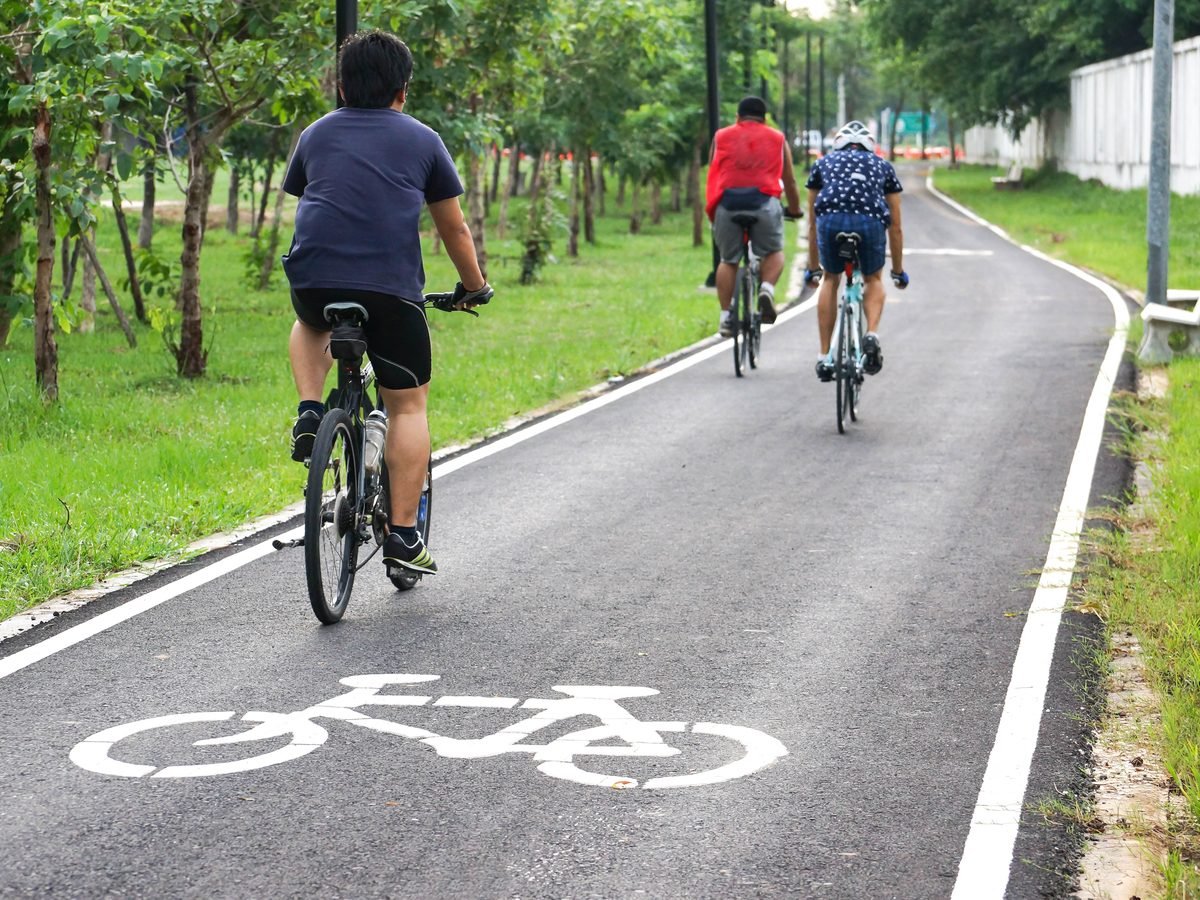
The pursuit of happiness
There are plenty of reasons to seek happiness. Research has shown that arthritis patients who have a “positive affect” are able to take more daily steps than their unhappy counterparts. Merry people tend to avoid getting sick during flu season, and they even live longer. Plus, experiencing joy just feels good. With that in mind, here’s how to be happy—through 47 small (and often surprising) changes to your daily routine.

Keep a diary—and re-read it from time to time
According to a 2014 study in Psychological Science, writing in a journal can make people happy, even if the entries are mundane. We tend to forget the little things in life that bring us pleasure, but documenting those ordinary moments allows us to rediscover them.
Try these 10 simple secrets to find your happy place.

Figure out your purpose
“This is about having some kind of goal or principle that orients your life and moves you into the future,” says journalist and author Emily Esfahani Smith. It could be a big goal, like getting involved in politics, or a more personal option, like being a good parent. Either way, it should be one that motivates you and organizes the activities of your day around something greater than yourself.
Need some insight into what your purpose might be? These inspirational quotes will help.

Forgive (even if you can’t forget)
Holding a grudge is stressful and can make you feel angry, sad, anxious and out of control. But forgiving someone who has hurt you doesn’t cause negative emotions at all.
These strategies are the secret to long-lasting relationships.

Read every day
According to Neil Pasricha, the author of seven books on happiness (including You Are Awesome), reading 20 pages of a novel every day will make you happier. “Literary fiction is shown to increase brain activity and improve our capacity for empathy, compassion and understanding,” he says. He recommends paper books to reduce screen time.
Check out the surprising benefits of reading aloud.

See negative emotions as an opportunity
“It’s important to acknowledge that unhappiness is part of the human experience,” says Meik Wiking, the author of several books on happiness, including The Art of Making Memories. “We will struggle; we will be heartbroken; we will experience setbacks—overcoming them is what makes us both human and happy.”
Here are 14 things only people with anxiety will understand.

Rethink your approach to stress
Kelly McGonigal, a health psychologist at Stanford University and the author of The Upside of Stress, says thinking about anxiety-inducing situations as challenges instead of threats can minimize the negative impact of stress on your health and reduce your risk of, for instance, cardiovascular disease.
Find out more risk factors for heart disease.

Take up a hobby
But here’s the catch: it has to be something you’re not good at—say, stand-up comedy, making chocolate or maybe balloon animals? That’s because we’re happier when we’re learning.
Looking for inspiration? Find out the best hobby for you based on your star sign.

Focus on relationships
According to Robert Waldinger, a psychiatrist, professor at Harvard Medical School and director of the Harvard Study of Adult Development, strong relationships are the key to happiness. Whether they’re romantic partners, friends, children or co-workers, other people help “remind us of what’s important in life and help us weather the ups and downs of personal and political problems,” he says. “They usually cannot solve these problems, but they can provide an emotional buffer that softens the impact of real-world issues.”
These communication tips will help you improve your relationships.

Act extroverted—even if you’re not
“We found that when introverted people reported that they were acting outgoing, those tended to be their happier moments,” says John Zelenski, a psychology professor at Carleton University in Ottawa. That means talking to strangers on the bus or chatting with a barista can boost people’s happiness, even if they’re naturally solitary types.
Don’t miss this expert advice on how to make new friends as a grown-up.

Get a pet
Owning a pet can make you happier. A recent Washington State University study found that just 10 minutes of petting a furry friend resulted in reduced levels of the stress hormone cortisol. And dogs might have an edge over cats—in a recent survey of Americans, 36 percent of dog owners rated themselves as “very happy” compared to only 18 percent of cat owners.
These are some other health benefits of owning a pet.

Share the child-care
A 2019 psychology study concluded that dads are happier than moms, perhaps because they were more likely to report that they were playing with their kids rather than doing housework. The lesson? Split child-care—and household tasks—equally.
These quotes about happiness will help lift your spirits.

Start following sports
According to the psychology professor Daniel L. Wann, who literally wrote the book on sport fandom—that would be Sport Fans: The Psychology and Social Impact of Fandom—rooting for a team leads to social connections, which provide a buffer against depression and alienation as well as increasing self-esteem and self-worth. But choose wisely: losing teams don’t offer the same benefits. (Sorry, Leafs fans.)
Check out more strategies to boost your self-esteem.

Practice your faith
If you’re religious, going to church, temple or mosque will make you happier. A recent Pew Research Centre survey of 24 countries found that in Australia, for example, 45 percent of actively religious people said they were very happy, compared to 32 percent of inactively religious people and 33 percent of unaffiliated people.
These good news stories from around the world will brighten your day.

Join a choir
Joining a choir can bring you joy, thanks to the combination of singing and a group dynamic. Bonus: you don’t have to be a good singer to reap the benefits.
Here’s why our brains prefer music from our youth.

Get out of the house
Being outside can boost your mood. In a study led by Zelenski, people who spent 15 minutes outdoors reported about 60 percent more positive emotions than those who stayed inside. “The idea is that humans evolved in nature, so we have some preference and appreciation for healthy environments.” And while the effects aren’t quite as strong, simply watching a nature documentary will do in a pinch.
Lost your enthusiasm for a daily walk? Find out how to make walking less boring.

Stare at trees
Esfahani Smith says nature provides transcendent moments: “[When] you’re lifted above the hustle and bustle of daily life, your sense of self fades away and you feel connected to a higher reality.” In 2015, researchers at the University of California, Berkeley, asked 90 students to look up at 60-metre-tall eucalyptus trees for one minute. After, the subjects reported feeling less self-centred, and they behaved more generously when given the chance to help someone.
This is where to find the oldest tree in Canada.

Grab coffee with co-workers
A 2018 study out of the University of California, Davis, found that colleagues who drink a cup of coffee together before starting their workday were more engaged, focused and receptive to one another’s ideas compared to those who shared a coffee with workmates later in the day.
Find out 10 ways to make your coffee habit even healthier.

Get a good sleep
A 2015 Gallup poll of Americans found that if you’re sleeping less than six hours per night, you’re about 30 percent less happy than people who get between seven-and-a-half and nine hours of shut-eye.
These are the best sleeping positions for a good night’s sleep.

Exercise—even if it’s brief
It may not feel that way while we’re doing it, but exercise makes us happier. Several studies have found that people who work out for at least 30 minutes five times per week were at least 30 percent more likely to consider themselves happy than people who never exercised. And it may not even take that much; other studies found that just 10 minutes of exercise per day can make you more cheerful.
Hate exercising? Get a full-body workout from walking.

Stand up straight
According to a 2017 study published in the journal Biofeedback, people who slouched while walking felt more depressed—but when they stood in a more upright position, they reported a significant bump in their outlook and energy levels.
Did you know that there’s no such this as bad posture? Check out 12 more things that physiotherapists want you to know.

Don’t let mid-life get you down
According to a new national survey conducted by Leger, 61 percent of Canadians reported high happiness levels after age 55. This lines up with previous research that found that people tend to experience their highest levels of happiness in youth and old age, because mid-life is a stressful life stage.
Find out 11 surprising things that can slow down aging.

Try probiotics
A 2015 Dutch study found that people who take probiotic supplements once a day for four weeks are happier than those who don’t. At the end of the four weeks, participants were less likely to focus on current bad feelings and past negative experiences.
Don’t miss these other benefits of probiotics.

Eat your greens
Eating lots of fruits and veggies can “enhance mental well-being,” according to a 2019 study in Social Science & Medicine. Aim for 10.5 portions per day—where a portion equals a cup of raw vegetables or fruits, or half a cup of cooked veggies.
Feed your brain with this expert-approved MIND Diet meal plan.

Live near water
Yes, a pool counts. According to a 2010 study in the Journal of Environmental Psychology, water makes people feel positive emotions. And if you need motivation to book a beach vacation, a 2016 study found that ocean views are linked to lower levels of psychological distress.
Nowhere near the waterfront? Take a trip to one of the most beautiful waterfalls in Canada.

Step out of the city
Cities offer many things we associate with happiness, such as walking, culture and more employment opportunities. But they don’t make us happy. A 2018 survey by the Vancouver School of Economics and the University of British Columbia found that the happiest communities in Canada are all rural—Neebing, Ontario; Shippagan, New Brunswick; Channel-Port-aux Basques, Newfoundland; Hope, British Columbia; St. Anthony, Newfoundland; and Souris, Prince Edward Island.
No matter where you live, this roundup of the best Canadian jokes from coast to coast will put a smile on your face.

Get away from crowds
Maybe those rural communities are so happy because residents don’t have many close neighbours. The same survey found that the happiest quintile of Canadians live in places with low population density.
Here are the 10 places in Canada every Canadian needs to visit.

Seek out the suburbs
A home in the ’burbs can make us happy. According to a 2014 poll of Americans by Atlantic Media and Siemens, 84 percent of suburbanites were satisfied with the community where they lived, versus 75 percent of city dwellers and 78 percent of rural residents. So maybe it’s no surprise that most Canadians (67 percent) live in the suburbs.
Want more tips on how to be happy? These mindful shopping tips will do the trick.

Prioritize bike paths
Regardless of the size of your city, you’re likely to be happier if you live somewhere with sidewalks and bike paths—so long as you use them, of course.
Check out the best bike trail in every province.

Shorten your commute
Researchers in the United Kingdom found that adding just 20 minutes to your daily commute has the same negative impact on life satisfaction as a monthly pay cut of $550.
Make your commute safer by avoiding these dangerous habits.

Walk when you can
Of course, the best commute isn’t just short, it’s walkable. According to recent research by McGill University, pedestrians are the happiest, with 85 percent saying they’re satisfied with their commute.
Discover the benefits of walking 10,000 steps per day.

Put down roots
The happiest people in Canada have lived at the same address for more than five years, likely because they’re more immersed in their community and have a greater sense of belonging.
These expert-approved tips can help you wake up happier every morning.

Try to live near trees
If you do live in the city, aim for a neighbourhood with lots of trees. A 2015 study of Toronto’s districts showed that people who live on a block with 10 or more trees had a better perception of their own health. In fact, it was comparable to making $10,000 more a year or being seven years younger.
Lose yourself in this stunning gallery of a walk in the woods.

Spend money to save time
According to a 2017 study by the University of British Columbia and Harvard Business School, when people spent money on things that saved them time, they reported greater life satisfaction. So hire a housekeeper and shop at the grocery store that’s closest to home, even if it’s a bit more expensive.
Save even more time with these clever kitchen hacks.

Be generous
According to a 2008 study from the University of British Columbia and Harvard Business School, people who spent money on others were happier than those who spent money on themselves. The study provided participants with a windfall of either $5 or $20 to spend on themselves or on a gift or charitable donation; the more generous group reported higher levels of happiness, regardless of how much money they received.
Find out how you can help make the world a more peaceful place.

Pay for the experience
If you’re looking for lasting happiness, spend your discretionary income on experiences. According to Waldinger, buying material items “makes us less happy for less time than using that money to buy experiences, especially those with other people, [such as] vacations or outings with family and friends.”
Looking for inspiration? Don’t miss these Canadian hidden gems!

Rent as long as you like
Don’t get too hung up on home ownership. A preliminary paper presented at the 2018 American Economic Association conference says people tend to overestimate how happy home ownership will actually make them—and while they do tend to report higher life satisfaction right after buying a home, the effects diminish over time.
Find out the 7 top tips for house hunting in Canada.

But don’t let your rent get too high
What does matter when it comes to the roof over your head? How much it costs you. The happiest people in Canada spend less than 30 percent of their income on housing.
Looking to curb those monthly expenses? These simple home hacks will save you money.

Watch out for Wednesdays
It turns out, Wednesdays—not Mondays—are the worst day of the week, according to University of Vermont data scientists who studied patterns of web-based messages. The use of positive words peaks on Sunday, then steadily declines to its lowest point on Wednesday before rising again. To offset the impact, plan something nice for hump day.
Find out six things you should always do on a Monday.

Stop staring at your screen
Cutting back on screen time makes for happier people. In one recent study of teens, just one hour of screen time a day was correlated with greater unhappiness, and as screen time increased, happiness continued to drop. These findings likely apply to adults, too. Pasricha says, “Cellphones are… totally addictive comparison machines that hijack our brains and turn us into anxiety-riddled, stress-addled, thin-skinned versions of our best selves.”
Concerned you might be addicted to social media? Here’s advice on how to unplug.

Eat at home
Eat at home. (Bonus points if it’s healthy food.) A 2011 study of 160 women found they felt more intense positive emotions and fewer intense negative emotions after a meal prepared at home. Although going to a restaurant feels like a treat, it’s easier to make healthier choices at home, which triggers good feelings—which, in turn, encouraged them to keep making healthy choices.
If it’s comfort food you’re after, this collection of our best-ever slow cooker recipes is just the ticket.

Wear sunglasses
In his book, The Upward Spiral, neuroscientist Alex Korb explains how wearing sunglasses can trick us into feeling happier. When it’s bright outside, we tend to squint, which activates the corrugator supercilii muscle in our foreheads. We also use this muscle to frown when we’re upset. So, what do our brains do? Get confused about just what we’re feeling. But donning sunglasses can stop that biofeedback loop.
These tips will help you stop living in regret.

Think about what you love
When we think about the things in our lives that make us happy (like our families, hobbies and friends) and then imagine what life would be like if we didn’t have those things, it makes us appreciate them more, which makes us happier, says Kira M. Newman, an editor at the Greater Good Science Center at Berkeley.
These acts of kindness from across Canada will warm your heart.

Do one thing at a time
Do one thing at a time. Matthew Killingsworth, a senior fellow at the Wharton School at the University of Pennsylvania and the creator of the app Track Your Happiness, says we feel less content when our minds wander. His research showed that people are happiest when having sex, exercising or engaging in conversation—all things that require focus—and least happy when resting, working or using a home computer.
Find out how to stay focused with these pro tips.

Make ’em laugh—for the right reasons
A 2016 study published in Europe’s Journal of Psychology found that happy people use humour in positive ways—for example, to entertain others or cope with difficult circumstances. Unhappy people, on the other hand, use humour to manipulate or criticize others.
Want to work on your delivery? This roundup of our best-ever short jokes is a great place to start!

Rewrite your story
Esfahani Smith says storytelling—that is, the ways we think about the events of our lives—can be a powerful way of shaping our moods. “We’re constantly making narrative choices, so if we’re telling ourselves a bad story, or one that’s holding us back, we have the power to edit that story,” she says.
These 50 Canadians revealed what their happy place is — what’s yours?

Be observant
If practising gratitude doesn’t come naturally, start by simply noticing good things. “You can always see good things, even if you don’t feel grateful for them in the moment,” says Newman. “You really start to notice them more when you pay attention, and what we think about is our reality in a way. It’s a day-to-day exercise, like muscle strengthening.”
Want to make gratitude an everyday habit? Here’s how you can become a more thankful person.

Don’t overthink it
According to Newman, obsessing over happiness can actually backfire. Instead, pursue other things, like relationships or hobbies, and happiness will be the by-product.
If you enjoyed these tips on how to be happy, you’ll want to add these mental health podcasts to your playlist.